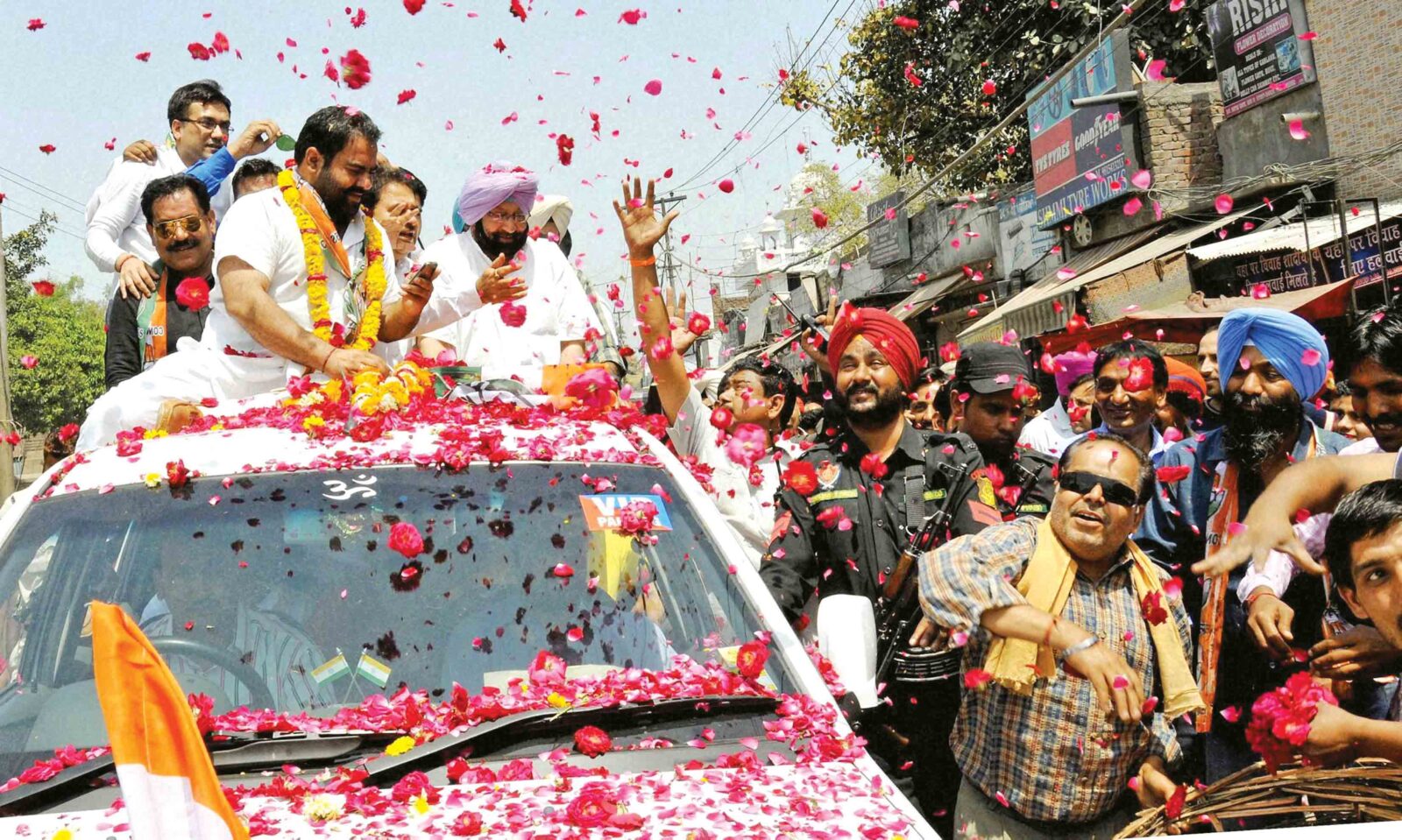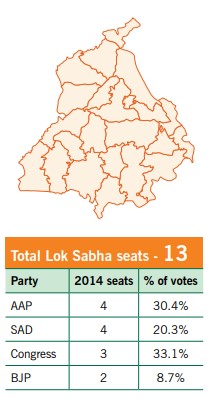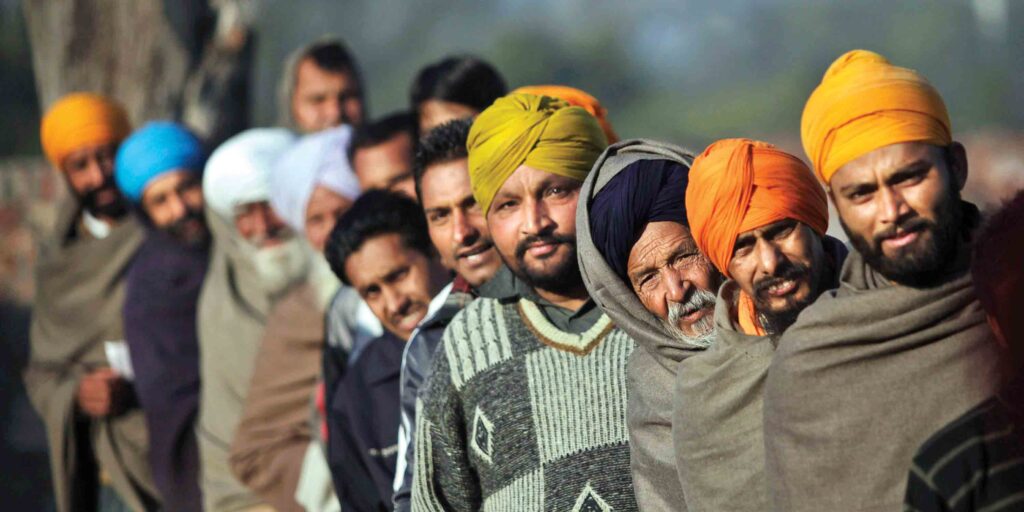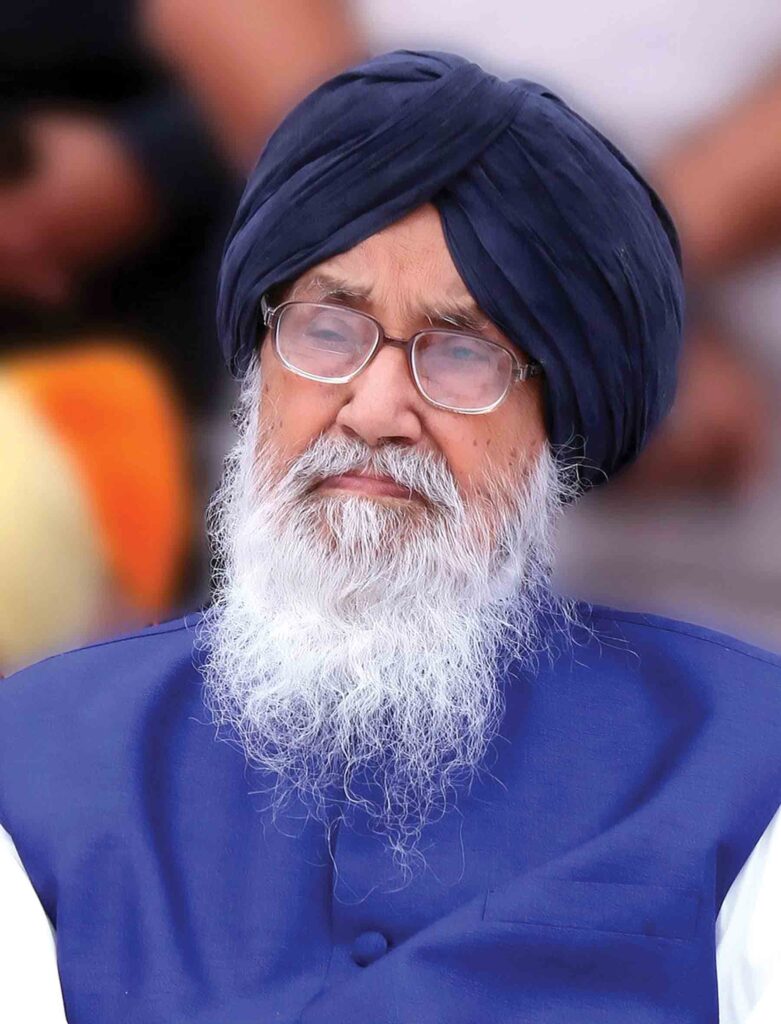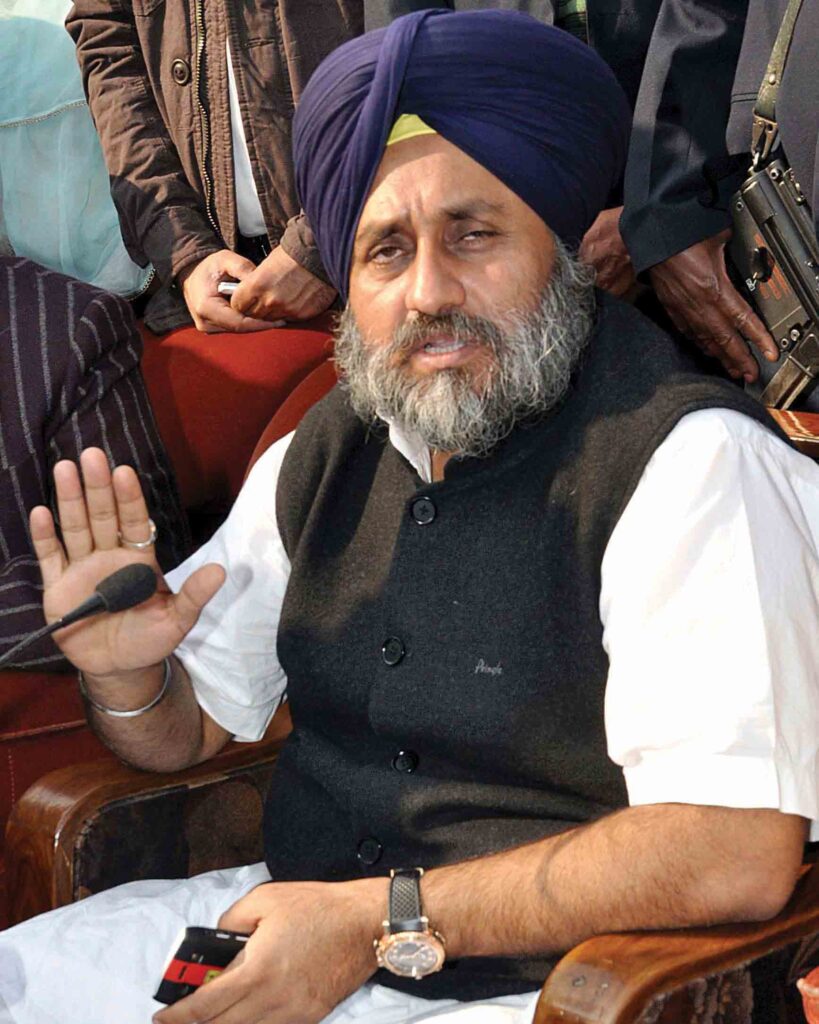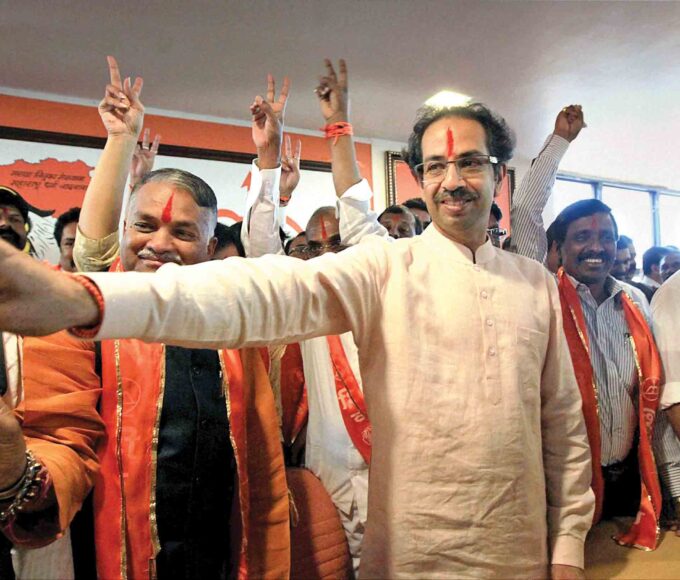- Cover Story
- Governance
- Globe Scan
- Corruption
- State Scan
- Talk Time
- Cover Story
- Governance
- Globe Scan
- Corruption
- State Scan
- Talk Time
Recent Posts
© Copyright 2007 - 2023 Gfiles India. All rights reserved powered by Creative Web INC.ElectionA Fighting Chance
In the pan-India political war of 2019, there are several ifs and buts. In Punjab though, the Congress for the first time ever can be seen ahead in the battle. Shamsher Chandelreports from Chandigarh.
Shamsher ChandelApril 4, 20194 Mins read105 Views
 Written by Shamsher Chandel
Written by Shamsher ChandelAS the 2019 Lok Sabha polls approach, the land of five rivers, Punjab, which brought about the Green Revolution in the 1960s and fed the entire nation, is battling a complex battle of socio-economic evils like farmers’ suicides, unemployment, drug menace, crime, and so on.
The aab (waters), of the Punjdariya (the five rivers), from which Punjab derives its name, irrigated the vast tracts of this land in the 1960 and 1970s. In the 1980s, Punjab saw turbulence in the form of terrorism. In the 1990s, it started making a gradual transition from violence to peace. People felt happiness at each successive sunset and sunrise. They saw hope in it. For them any alternative was better than bullets being fired in the eerie silence of the night, than counting dead bodies looking for their missing ones.
After an ominous decade-and-a-half, Punjab enjoyed as much time in peace as it could. But the typical Hindi film ending – ‘They happily lived ever after,’ is never true in real life.

In times of peace, social conflicts always arise. But as long as there are welfare measures by state, societies progress. And that is where the political leadership in Punjab has failed and how?
Just 10 years after terrorism, pressing issues started making headlines in the newspapers – farmer suicides, increase in the number of cancer patients, unemployment among other things. A few years more down, around 2010, farmers’ suicides and unemployment gave birth to twin issues: Widespread drug addiction and crime.
The mystery about how the Malwa belt of Punjab saw an increase in the number of cancer patients was solved when newspapers reported that the underground water was carcinogenic. While the contamination of the five rivers of Punjab is visible to a naked eye at its confluence, it may not be true about politicians. The Sutlej, which carries the carcinogenic waters of Budanalla flowing out of Ludhiana’s dyeing industrial units, contaminates the pure waters of Beas at Harike. However, the contamination of political ideas is not so easily felt or solved.
Like the water bodies, thesiyasat (politics) of Punjab is also getting cancerous. The thing about cancer in medical science is that it spreads and starts eating the organs. Often it spread from one organ to the other but goes unnoticed till it is too late. In Punjab politics, this malignancy is spreading fast. A politician trespasses from one party to the other but does not leave the ideology from the past and then typically is reduced to an anti-body, almost like a failed kidney transplant.
The present Chief Minister, CaptAmarinder Singh himself began his career with Congress, then joined the Akalis only to return to the Congress fold. Sukhpal Singh Khaira, who formed the Punjab Democratic Alliance is one example who has been part of three different parties in as many years. He came from the Congress, joined AAP and then formed the PDA and is now a portable political party.
Gen JJ Singh, a former Army chief, joined the Shiromani Akali Dal (B), a party which has quasi-Sikh tenets, and now is in the ranks of Akali Dal (Taksali).
Harinder Singh Khalsa, the former IFS officer, was Lok Sabha MP from the AamAadmi Party. In March this year, he took an ideological u-turn and joined the BJP. The politics of Punjab has now seen so many overlapping meeting points that it is difficult to differentiate political parties and leaders on the basis of ideologies. In fact, the ideologies are passé.
So the question is what works. And how will the people of Punjab vote?
AS the 2019 polls approach, I ask a Payal-based farmer Karamjeet Singh as to which party or candidate will he vote for? In return, he questions me before answering my question: “Je saaredariyezeharile ho jaangetetussikededariye da paanipiyoge? (If the water of all the rivers is polluted, which one will you drink from?” he asks, and then responds himself, “The one which is least contaminated.”
So which party is the least contaminated? I ask him. Rattan Singh, another farmer, sitting by his side, says, they all are one and the same.
The voters have five alternatives – Congress, AamAadmi Party, its breakaway the Punjab Democratic Alliance, Shiromani Akali Dal (Badal), and its breakaway Akali Dal (Taksali).
The Aam Aadmi Party is trying to find its feet afresh and Shiromani Akali Dal (Badal), with the octogenarian Parkash Singh Badal almost retired, have Sukhbir Badal to fire fight in the aftermath of the Ranjeet Singh Brahmpura faction announcing a separate political outfit
Talking about ideology, he adds, “Vichardharataansiyasatvich libaaz di tarahhondi ae rozbadal di rehndi ae. Assienha di vicharadharakithophadiye” (They wear ideology like attire which keeps changing daily, how can we keep track of their ideology? We need people who work).

Adding to the sentiment is veteran journalist Resham Singh. He says, “We are about a month-and-a-half away from the polls. And the political parties and voters alike are discussing the candidates. Who will win, who will lose? There is titillation in all of this, as if a cricket match is at stake. No one is discussing the real issues.”

I ask him, is there any hope? He says, sometimes the evil gives birth to the good. One such evil of drug addiction was raised in the movie Udta Punjab. There is another Udta Punjab – a positive one – which brings hefty remunerations to the state and offers hope to its youth. MV Kamath, the famous journalist, once said in the 1960s, that the culture of UP and Bihar is only possible because of the agriculture of Punjab. That was then. Today’s idiom is different. “The culture of much of Punjab is possible because of remunerations coming from Punjabis in US and Canada.” This Udta Punjab is a by-product of lack of good educational facilities, unemployment, crime and eerie uncertainty for the millennials of the state. He attributes this to the failure of successive governments. The immigration industry is growing at a faster rate than agriculture or even industry. It is growing like a behemoth and taking away future teachers, doctors, engineers, farmers, and even carpenter, plumbers, masons from us. When people leave their homes, forever, even the silent waters make noise but not the political leadership of Punjab. After all, their task gets easier.

ABOUT two decades ago, those who aspired to fly abroad would build water tanks in the shape of aeroplanes on their rooftops in the hope that one day they will go abroad. Today, they have stopped doing so. Instead, they are flying at the earliest they can. Udta Punjab! Even as the state goes to the poll on May 12 many would be in taxis, airport lounges, or flying mid-air. Their aspiration: To become citizens of another country. For them, Punjab would be reduced to a yearly visit or an update on Whatsapp calls and videos.
The writer is Editor, The Hush Post
Recent Posts
Related Articles
ElectionElection 2024ParliamentPoliticsState ScanYadav V/S Jats : Fierce fight in Bhiwani
Written by Special Correspondent Can you imagine that Bhiwani of Bansilal, the so-called...
BySpecial CorrespondentMarch 2, 2024ElectionBJP enjoys an edge
Written by Prakash Bhandari RAJASTHAN is a cultural, historical and political region that...
ByPrakash BhandariApril 8, 2019ElectionTesting waters
Written by Sumit Bothra IT is certain that the 17th parliamentary election is...
BySumit BothraApril 6, 2019ElectionEndgame?
Written by K. SUBRAMANIAN IF the stupendous victory of the 2014 Lok Sabha...
ByK. SUBRAMANIANApril 5, 2019 - Governance
- Governance























































